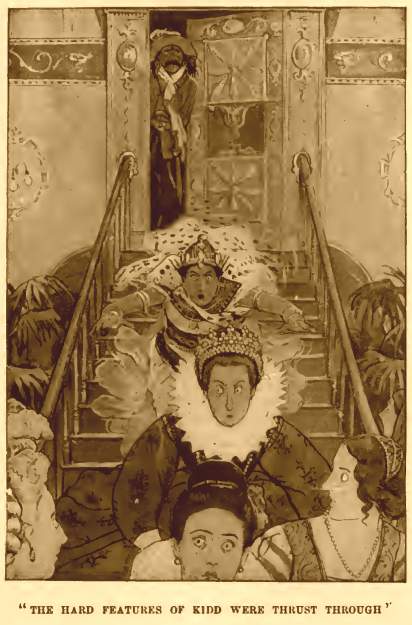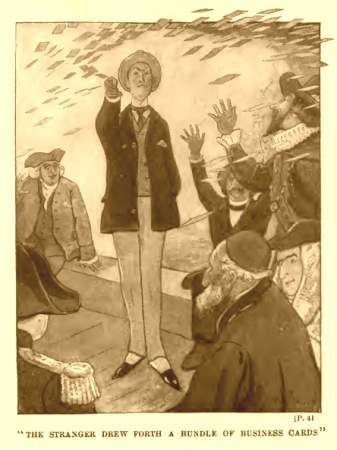‘The Pursuit of the House-Boat’, a sequel to the ‘A House-Boat on the Styx’, is a satisfying fantasy novel written by John Kendrick Bangs with a heavy dose of his signature sharp wit. Even though the level of humor was a tad bit lower than of the first novel in the series featuring the ‘Associated Shades’ and their clubhouse houseboat on the Styx in Hades, ‘The Pursuit of House-Boat’ written in 1897 is a definite candidate for lightweight reading.
The book carry’s on the tradition of the Bangsian Fantasy and brings together an assortment of heavyweights from the history and mythology together to create a satire that showcase the power of vocal humor, for which Bangs was largely renowned for during his time. Bangs seems to be performing an experiment with his musings on the theory of afterlife with these fantasies.
‘A House-Boat on the Styx’ ends with a scene depicting an unattended clubhouse houseboat (all the men were at that point watching a fight between Goliath and Samson) getting hijacked by Captain Kidd – as a revenge for his denied membership to the clubhouse – and his crew of pirates. At the moment of hijacking, unknown to Captain Kidd and his crew there was a contingent of about two hundred of the cream of the womenfolk from the Hades like Queen Elizabeth, Mrs. Noah, Cleopatra, Xanthippe and Helen who were taking advantage of the absence of the male club members to satisfy their curiosity about the clubhouse by nosing around onboard. The pirates, not knowing the cargo they are carrying, sails to Europe with the houseboat in search of plunder.

At the beginning of the sequel, the reader is introduced to a scene where the members of the ‘Associated Shades’ are deeply in a meeting about the mystery and the action to be taken in recovering their clubhouse and their womenfolk. And in to this heated and hilarious meeting enters none other than the legendary detective figure Sherlock Holmes, a recent entry to the Hades – in 1897 at the time of writing of this novel Holmes was declared dead by Conan Doyle after his battle with Professor Moriarty at the Reichenbach Falls – who soon gains the confidence of the club members in leading an expedition in pursuit of the hijacked houseboat.

What follows is a hilarious nautical adventure in which the club members led by Sherlock Holmes goes after the pirates. Holmes making deductions from absurd clues and the pirates finding it difficult to control a mob of strong female characters adds to the pandemonium and merriment of the narration. Like the other Bangsian fantasies from the author, some background information on the historical figures, which he uses as characters, will help in fully enjoying the hilarious remarks he makes of them.
Instead of being a collection of short stories like the prequel, this volume is centered on a main plot and narrates a single tale of satire with Sherlock Holmes and the womenfolk equally adorning the central stage. This will be one of the oldest of the Holmes pastiches, and what makes it special is the fact that it was written at a time when Conan Doyle was still operating.
Since this is written as a piece of satire, true Holmes fans should have no problem in enjoying this parody without any malice over the way in which the pastiche is created out of silly plots. According to an interview that Kendrick Bangs gave in 1899, Conan Doyle himself, who was a personal friend of Bangs, found these parodies featuring Holmes written by Bangs highly original and amusing.






